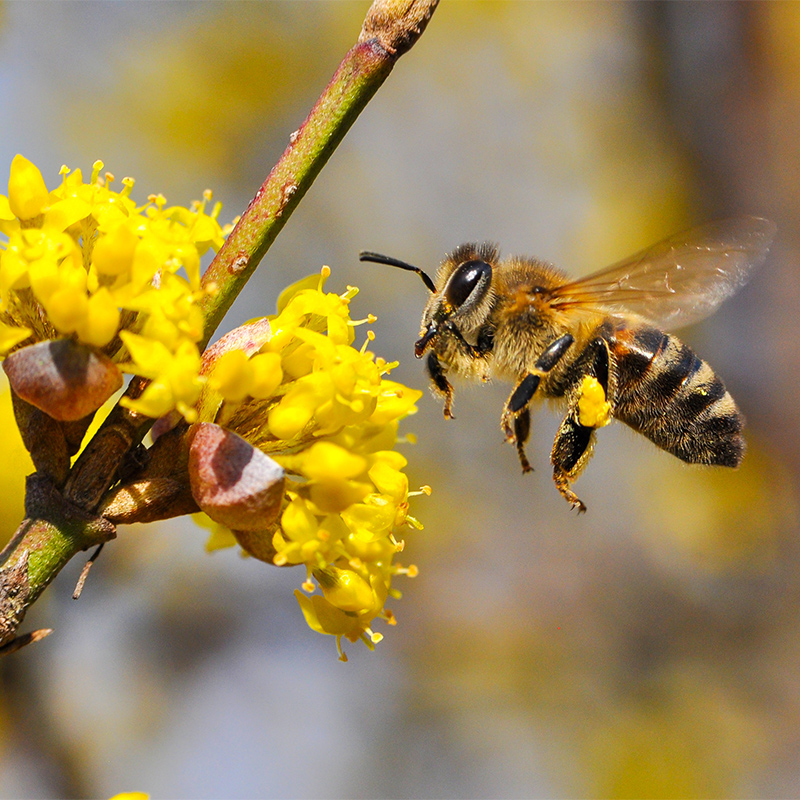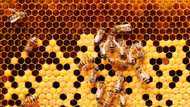Have you ever heard the expression "busy as a bee?" If you've seen a bee buzzing around, you know that they genuinely are busy little creatures! Flying from flower to flower, it is their job to pollinate the fruits, veggies, and nuts that make up one-third of the food we eat. Not only that, bees play an essential role in the health and biodiversity of the ecosystem, from the food we eat to the houses we live in and the air we breathe.

Why do we need bees?
Bees are essential pollinators. Pollination is the process by which plants reproduce. Approximately 90% of flowering plants depend on bees for cross-pollination (the transfer of pollen from one flower or plant to another), fertilizing them! Bees and flowering plants are entirely dependent on each other for survival. These include most plants that supply our basic needs, like food, shelter, and oxygen. Meanwhile, the bees depend on the flowers to provide the nectar and pollen (the food bees eat).
Fun Fact: Bees are incredibly organized! When a honey bee sets off on a foraging expedition, he shows unwavering loyalty to the first flower he lands on, exclusively visiting that particular plant throughout his trip. This intrinsic trait allows pollination to be even more successful!
 The benefits of beehives.
The benefits of beehives.
Beehives provide so many more things than just honey! For starters, honeybees are natural pest controllers. Having them around helps to keep the population of insects such as mites and aphids in check. Their venom contains formic acid, a natural component of honey that also kills mites in their hives! Bees possess a remarkable trait in nature, demonstrating the extraordinary skill of constructing perfect hexagonal shapes. These intricate shapes form the honeycomb, a structure that serves as a container for eggs, pollen, and honey. Within the hive, the honeycomb is composed of beeswax, a versatile substance with numerous practical applications such as candle-making, cosmetics production, food wrapping, and polishing agents for furniture and other surfaces.

Don't Bee a hater, save the Pollinator!
Beekeeping is a great way to support local agriculture. Proper pollination dramatically enhances the quality of fruits and vegetables, resulting in improved yields, size, nutritional content, and extended shelf life. By keeping bees, we ensure that local crops receive the essential pollination they require. Moreover, supporting local farmers encourages cultivating diverse fruits and vegetables, thereby providing bees with a varied and balanced diet. The presence of beekeepers also offers abundant opportunities to obtain locally sourced honey, which contains pollen from the region. Consuming local honey can fortify the immune system and alleviate pollen allergies. We are all about shopping local!
These remarkable creatures play a vital role in maintaining the health of our environment. Without them, our food sources would diminish, and biodiversity would suffer. So, the next time you're outside, remember to take the time to smell the flowers and thank the bees for their outstanding job!
Now that you know what all of the buzz is about, check out our collection of Bee-autiful Honey Soaps and help save the bees.





